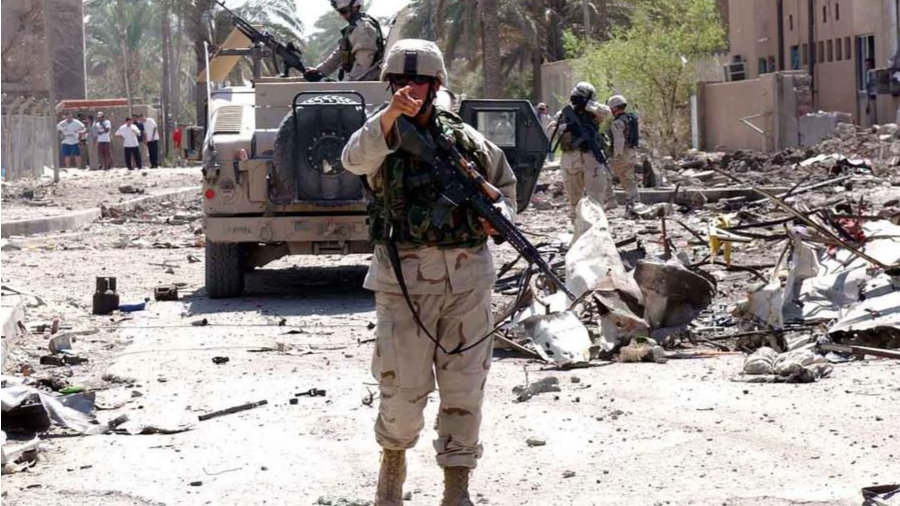
BAGHDAD — On March 20, 2003, as air raid sirens blared over Baghdad, darkness once again engulfed the country.
"We have no ambition in Iraq, except to remove a threat and restore control of that country to its own people," proclaimed then US President George W. Bush.
Upon learning of the US invasion, Hussein Ali Saeed, a retired Iraqi oil worker in Kirkuk, and his colleagues burned all materials related to oil production.
READ MORE: Iraq War points to Washington's worst violation of human rights
"If we didn't destroy them, the Americans would surely come looking for trouble," he said.
Hussein's instinct stemmed from the country's past suffering. Former Federal Reserve Chairman Alan Greenspan admitted in his memoir: "I'm saddened that it is politically inconvenient to acknowledge what everyone knows: The Iraq war is largely about oil."
"History seems to be repeating itself, with America's invasion throwing us back a hundred years," Hussein said bitterly.
In the 1970s, with the decline of America's economic dominance and the collapse of the Bretton Woods system, the dollar was decoupled from gold. To maintain dollar hegemony, the United States linked it to oil, establishing the petrodollar system.
In 2000, Iraq switched from the dollar to the euro for oil trading, posing a threat to the petrodollar system. After the 2003 invasion and the fall of Saddam Hussein's government, the United States mandated that Iraqi oil exports return to dollar transactions.
READ MORE: Defense ties part of US-Iraq talks next week, US official says
The American invasion devastated Iraq. "Basic living standards collapsed, pensions were low, the elderly lost access to healthcare, and sometimes even food supplies were uncertain," Hussein said.
In 2011, the US military withdrew, leaving behind an economically stagnant, politically fractured Iraq plagued by terrorism. The war and ensuing violence in Iraq were estimated to have killed more than 200,000 civilians and left over 9 million others displaced.
"Oil should be a source of happiness for Iraqis. Yet, for over a century, it has become a curse for the country," Hussein said.


